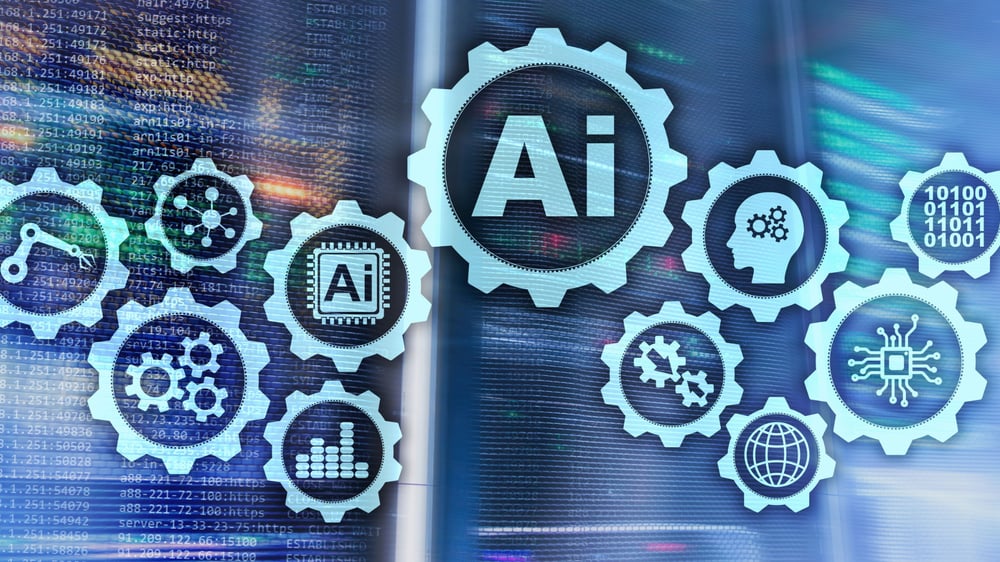Top 5 AI-Powered Tools Every Data Engineer Should Know
AI Technology Data Tools Oct 8, 2025 9:00:00 AM Ken Pomella 3 min read

AI isn't just a data science concern anymore; it's a foundational technology that's revolutionizing the data engineering lifecycle. Automated code generation, proactive data quality checks, and intelligent pipeline orchestration are now standard features in the modern data stack.
Here are the Top 5 AI-Powered Tools every data engineer should know to stay ahead in 2025.
1. AI-Powered Data Observability Tools (e.g., Monte Carlo, Collibra)
The biggest headache for data engineers is often data quality. AI-powered observability tools move beyond static monitoring to proactively identify and fix data issues before they impact downstream consumers or ML models.
Why They're Essential:
- Anomaly Detection: Instead of writing thousands of manual tests, these platforms use Machine Learning (ML) to learn the historical patterns and distribution of your data. They automatically alert you to anomalies like sudden drops in volume, changes in schema, or unexpected outliers in key metrics.
- Root Cause Analysis: When an issue is detected, the AI-driven lineage feature can automatically trace the error back to its source—whether it's an upstream API change, a bad ETL job, or a source system failure.
- Automated Schema Drift Management: These tools automatically detect and alert you to unexpected schema changes in source systems, preventing pipeline breaks without manual intervention.
2. Generative AI Code Assistants (e.g., GitHub Copilot, Google Gemini)
Generative AI (GenAI) is transforming how data engineers write code, from simple SQL transformations to complex Python scripts for data processing. These tools act as hyper-efficient pair programmers.
Why They're Essential:
- Accelerated ETL/ELT: You can generate entire SQL queries, PySpark functions, or even dbt models from natural language prompts, dramatically cutting down the time spent on repetitive data transformations.
- Debugging and Optimization: AI assistants can instantly explain complex or legacy code and offer suggestions for optimizing SQL queries for better performance and cost-efficiency in cloud warehouses like Snowflake or BigQuery.
- Boilerplate Reduction: They automate the creation of boilerplate code for setting up cloud resources, logging, and defining basic data contracts, allowing engineers to focus on business logic.
3. Intelligent Data Integration & ETL Platforms (e.g., Matillion, Fivetran)
Modern ETL/ELT platforms are embedding AI directly into the data movement and transformation process, reducing the need for low-level configuration and maintenance.
Why They're Essential:
- Automated Data Mapping & Schema Reconciliation: AI can intelligently map source fields to target tables, even suggesting optimal data types and handling schema evolution by automatically adapting to changes in source APIs or databases.
- Self-Healing Pipelines: AI monitors pipeline runs, predicting failures based on historical data. Some platforms can even attempt to self-correct minor issues or suggest the most likely fix, reducing pipeline downtime and manual debugging.
- Transformation Suggestions: Based on your target environment (e.g., Redshift, Databricks), the platform's AI can suggest the most performant and cost-effective transformation logic.
4. Unified Data & AI Platforms (e.g., Databricks, Amazon SageMaker)
As data engineering and ML merge into MLOps, unified platforms are critical. These systems use AI to govern the data, manage the features, and monitor the models—all from one place.
Why They're Essential:
- Feature Stores (Feature Engineering): Platforms like Databricks or SageMaker use AI to help manage and serve machine learning features consistently across training and inference, ensuring model accuracy and eliminating data-model skew.
- Automated Cluster Optimization: They use ML to dynamically scale compute clusters (like Spark) up or down based on workload patterns, drastically cutting cloud costs and improving job latency without manual resource management.
- Simplified MLOps: These platforms automate the handoff of data pipelines into ML model training pipelines, simplifying deployment and monitoring—a key function that is increasingly falling under the data engineer's responsibility.
5. AI-Powered Data Governance & Catalog Tools (e.g., Alation, Informatica)
Data governance is too complex for manual effort alone. AI tools are making compliance, lineage tracking, and data discovery scalable.
Why They're Essential:
- Automated Data Classification: Using Natural Language Processing (NLP) and ML, these tools can automatically scan all your data assets (in the lake, warehouse, or databases) to identify and tag sensitive data (like PII, financial data, or health records).
- Intelligent Lineage Mapping: AI automatically tracks the full flow of a data point from its origin to its final report or dashboard. This is crucial for regulatory compliance and rapidly isolating the source of a data error.
- Metadata Enrichment: GenAI can analyze data and automatically suggest comprehensive business descriptions, data ownership, and usage policies for the data catalog, transforming a static registry into a living data knowledge graph.
The shift to AI-powered tools means data engineers spend less time on routine scripting and maintenance, and more time designing resilient, high-value data architectures. Embracing these tools is the key to becoming a modern, indispensable data engineer.

Ken Pomella
Ken Pomella is a seasoned technologist and distinguished thought leader in artificial intelligence (AI). With a rich background in software development, Ken has made significant contributions to various sectors by designing and implementing innovative solutions that address complex challenges. His journey from a hands-on developer to an entrepreneur and AI enthusiast encapsulates a deep-seated passion for technology and its potential to drive change in business.
Ready to start your data and AI mastery journey?
Explore our courses and take the first step towards becoming a data expert.
